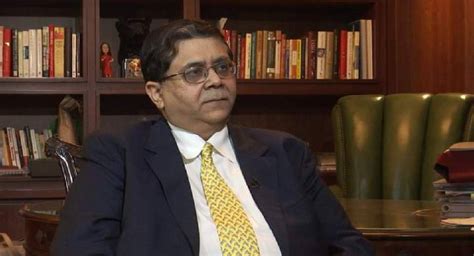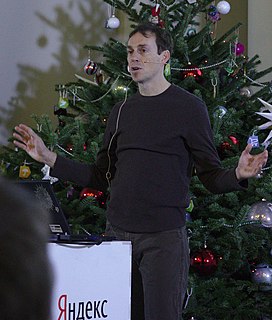A Quote by Cathy O'Neil
I would argue that one of the major problems with our blind trust in algorithms is that we can propagate discriminatory patterns without acknowledging any kind of intent.
Quote Topics
Related Quotes
Interviewer: What would you say to a woman in this country who assumes she is no longer oppressed, who believes women's liberation has been achieved? el Saadawi: Well I would think she is blind. Like many people who are blind to gender problems, to class problems, to international problems. She's blind to what's happening to her.
For good or for bad, India has rejected a more totalitarian approach to how it will deal with its social problems. We would starve but we would not give up our democracy and our love for our freedoms and to deal with these problems in an atmosphere of democracy and the rule of law without necessarily going, sort of resorting to civil disobedience or any kind of violent revolution.
I think it is astounding that people could argue for "you just must trust someone else to fix it" instead of "you could fix it yourself, or hire someone to fix it." There is a contractor base out there that can solve these problems as well as or better than the major vendors could. But I think the major vendors are still having more luck at getting the ear of the press.
There are only patterns, patterns on top of patterns, patterns that affect other patterns. Patterns hidden by patterns. Patterns within patterns. If you watch close, history does nothing but repeat itself. What we call chaos is just patterns we haven't recognized. What we call random is just patterns we can't decipher. what we can't understand we call nonsense. What we can't read we call gibberish. There is no free will. There are no variables.































